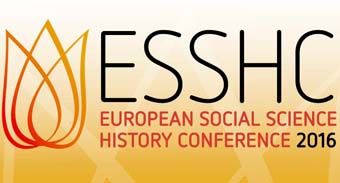
Members of the López Piñero Institute for the History of Science and Medicine have got Valencia as the headquarters, between 30 March and 2 April, of the 11th European Social Science History Conference (ESSHC), a biennial congress organised by the International Institute of Social History, which attracts more than 2,000 participants all around the world. J. L. Barona is the local responsible of the congress, and Ximo Guillem-Llobat and María José Báguena organise theme sessions.
Last editions took place in Berlin (2004), Amsterdam (2006), Lisbon (2008), Ghent (2010), Glasgow (2012) and Vienna (2014). The congress is integrated by theme networks which organise monographic sessions with small debate groups about Africa, Antiquity, Asia, Criminal Law, Culture, Economical History, Education and Infancy, Elites and Precursors, Ethnicity and Migration, Family and Demography, Health and Environment, Work, Latin America, Material Culture and Consumption, Middle Age, Oral History and Life Stories, Politics, Citizenship and Nations, Religion, Rural History, Sexuality, Social Inequality, Theory, City, Women and Gender, and World History.
Ximo Guillem-Llobat organises a session about ‘Defining quality for the winery of the world. The use of preservatives in wine in Spain and France by the late 19th century’.
María José Báguena presents a talk with M.V. Caballero about ‘The eradiocation of smallpox in Spain: the organization of the distribution and application of the smallpox vaccine (1944-1980)’.
Both in the theme network ‘Health & Environment’.
J.L. Barona coordinates with Tenna Jensen, M. Rodríguez and Peter Scholliers two sessions about ‘Bodies and Health: State and non-State actors’, dedicated respectively to ‘Food Policies from the Global to the local’ and ‘Social hygiene, prostitution and venereal diseases’, with a talk about ‘The emergence of venereal diseases in the international agenda (ca- 1900)’.
The sessions are framed in the theme networks Health & Environment’ and ‘Sexuality’.
Barona is ‘chair’ and ‘discussant’ of the session ‘The lessons of history: the European experience in the control of poverty related diseases’, integrated in the networks Health & Environment y Social Inequality.
More information and details of the programme in:
https://esshc.socialhistory.org/esshc-valencia-2016
Last update: 21 de march de 2016 12:29.
News release


















